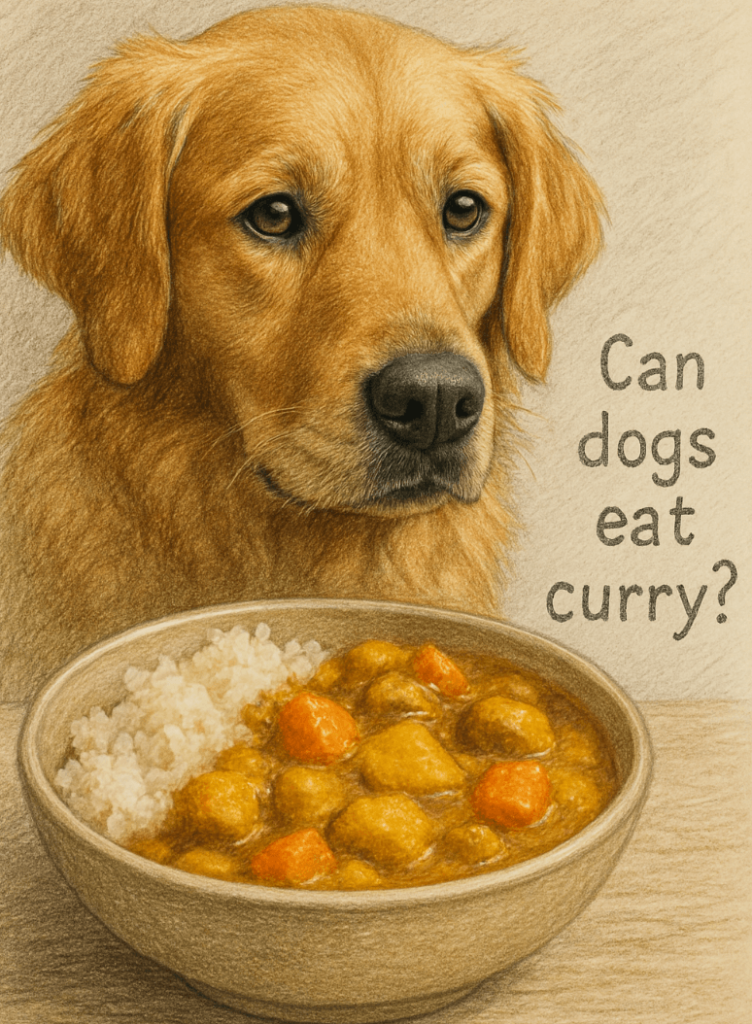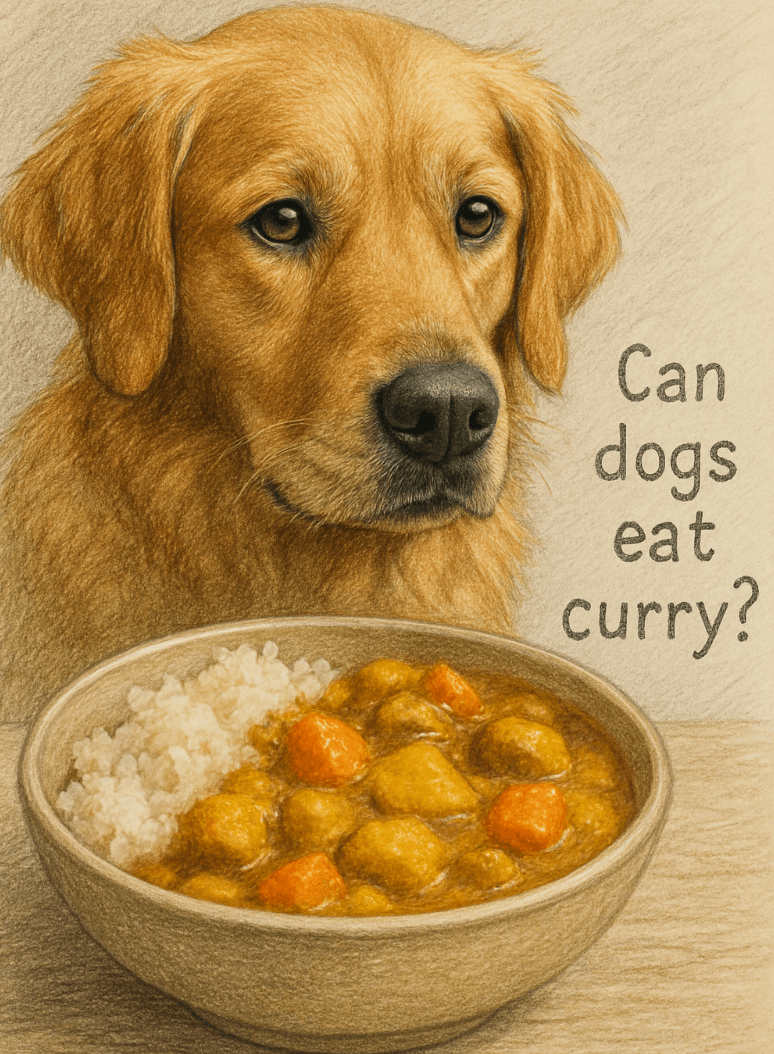Can Dogs Eat Curry?
Curry is a flavorful dish enjoyed by many people around the world, but when it comes to sharing your plate with your furry friend, caution is key. While some ingredients in curry may be safe for dogs in moderation, others can pose serious health risks. Understanding what makes curry potentially harmful or beneficial for your dog is essential before offering them even a small taste. In this blog post, we’ll explore whether dogs can eat curry, which ingredients to avoid, and how to safely incorporate similar flavors into your dog’s diet. With expert advice and practical tips, you’ll learn how to keep your pup happy and healthy while satisfying their curiosity about your meals.
Potential Risks of Feeding Curry to Dogs
While curry might seem like a harmless treat, many of its common ingredients can harm your dog’s digestive system or overall health. Here are some potential risks associated with feeding curry to your canine companion.
Spices Are Hard to Digest:
Many spices used in curry, such as cumin, turmeric, and chili powder, can upset your dog’s stomach or cause irritation.Onions and Garlic Are Toxic:
These common curry ingredients contain compounds that damage red blood cells, leading to anemia in dogs.High Fat Content Can Cause Pancreatitis:
Rich sauces and fatty meats often found in curry can trigger pancreatitis, a painful and dangerous condition.Salt and Seasonings Are Harmful:
Excessive salt and seasoning can lead to dehydration, sodium poisoning, or kidney issues in dogs.Dairy May Cause Digestive Upset:
Many curries include dairy products like cream or yogurt, which can cause diarrhea or gas in lactose-intolerant dogs.
These risks highlight why it’s important to carefully evaluate any food before sharing it with your dog. Always prioritize their safety over indulgence.
Ingredients in Curry That May Be Safe for Dogs (In Moderation)
Not all components of curry are off-limits for dogs. Some ingredients, when prepared properly and served in small amounts, can even offer nutritional benefits.
Plain Cooked Chicken or Turkey:
Lean proteins like chicken or turkey without added spices are safe and provide essential nutrients for dogs.Turmeric (In Small Amounts):
This anti-inflammatory spice has health benefits but should only be given in minimal quantities under veterinary guidance.Sweet Potatoes:
When cooked plain and unsweetened, sweet potatoes are a nutritious source of fiber and vitamins for dogs.Carrots:
Raw or cooked carrots make a healthy, crunchy snack that aids digestion and promotes dental health.Rice or Lentils:
Plain, cooked grains like rice or lentils can be easily digested and serve as a good source of energy for dogs.
While these ingredients are generally safe, they should always be introduced gradually and in moderation to avoid adverse reactions.
Check this guide 👉Can Dogs Eat Cactus? Best 7 Expert Tips!
Check this guide 👉Can Dogs Eat Fortune Cookies? Best 7 Expert Tips!
Check this guide 👉Can Dogs Eat Wasabi? Best 7 Expert Tips!

Safe Ingredients for Dogs | Harmful Ingredients to Avoid |
|---|---|
Plain cooked chicken or turkey | Onions and garlic |
Turmeric (in small amounts) | Chili peppers or hot spices |
Sweet potatoes | High-fat sauces or gravies |
Carrots | Salt and excessive seasonings |
Plain rice or lentils | Dairy products like cream or cheese |
How to Safely Introduce Curry Flavors to Your Dog
If you want to share the essence of curry with your dog, there are ways to do so safely without compromising their health. Follow these guidelines to ensure a positive experience.
Avoid Pre-Made Curry Dishes:
Store-bought or restaurant curries often contain harmful additives, spices, and fats that aren’t suitable for dogs.Prepare Homemade Alternatives:
Create a simplified version using dog-safe ingredients like lean protein, turmeric, and vegetables.Start with Tiny Portions:
Introduce new flavors in very small amounts to monitor your dog’s reaction and prevent digestive upset.Skip Spices and Seasonings:
Stick to bland preparations to avoid irritating your dog’s sensitive stomach or causing toxicity.Consult Your Veterinarian:
Before making any dietary changes, seek professional advice to ensure the ingredients align with your dog’s specific needs.
By taking these precautions, you can let your dog enjoy a taste of curry-inspired dishes without risking their well-being.
Signs Your Dog May Have Eaten Unsafe Curry Ingredients
Even with the best intentions, accidents happen. If your dog accidentally consumes unsafe curry ingredients, watch for these warning signs and act quickly.
Vomiting or Diarrhea:
Gastrointestinal distress is a common symptom of consuming toxic or spicy foods.Lethargy or Weakness:
These symptoms could indicate poisoning from onions, garlic, or excessive salt.Loss of Appetite:
A sudden refusal to eat may signal digestive discomfort or illness caused by harmful ingredients.Excessive Thirst or Urination:
Increased water consumption and frequent urination are signs of sodium poisoning from salty curry.Difficulty Breathing:
Spicy or heavily seasoned foods can irritate your dog’s airways, leading to coughing or labored breathing.
Recognizing these signs early allows you to seek veterinary care promptly, preventing further complications.
Common Mistakes to Avoid When Feeding Curry-Inspired Foods to Dogs
Feeding your dog curry-inspired meals requires careful planning to avoid mistakes that could harm their health. Here are some pitfalls to steer clear of.
Using Store-Bought Curry Pastes:
Many commercial pastes contain garlic, onion powder, and excessive salt, which are toxic to dogs.Adding Too Much Spice:
Even mild spices can irritate your dog’s stomach; stick to bland recipes instead.Overfeeding New Foods:
Introducing large portions too quickly can overwhelm your dog’s digestive system.Ignoring Allergies or Sensitivities:
Some dogs may react negatively to certain ingredients, so always observe their response closely.Assuming All Vegetables Are Safe:
Not all veggies used in curry, like tomatoes or bell peppers, are ideal for every dog. Research each ingredient thoroughly.
Avoiding these mistakes ensures a safer and healthier experience for your dog.
Nutritional Benefits of Dog-Safe Curry Ingredients
When prepared correctly, certain curry-inspired ingredients can provide valuable nutrients for your dog. Here’s how they contribute to their overall health.
Lean Proteins Build Muscle:
Chicken or turkey supplies high-quality protein, supporting muscle growth and repair.Turmeric Reduces Inflammation:
Curcumin, a compound in turmeric, has anti-inflammatory and antioxidant properties beneficial for joint health.Sweet Potatoes Aid Digestion:
Rich in fiber, sweet potatoes promote healthy digestion and regulate bowel movements.Carrots Support Eye Health:
Beta-carotene in carrots converts to vitamin A, promoting strong vision and immune function.Rice Provides Energy:
Easily digestible carbohydrates in rice offer a steady source of energy for active dogs.
These ingredients showcase how simple, wholesome foods can enhance your dog’s diet naturally.
Fun Ways to Incorporate Dog-Safe Curry Flavors Into Treats
If you’re looking to add variety to your dog’s diet, here are creative ways to include dog-safe curry-inspired flavors in homemade treats.
Homemade Veggie Patties:
Mix mashed sweet potatoes, carrots, and plain rice into patties for a nutritious snack.Turmeric Bone Broth Cubes:
Freeze low-sodium bone broth infused with a pinch of turmeric for refreshing and healthy treats.Baked Chicken Bites:
Dice cooked chicken and bake with a sprinkle of turmeric for bite-sized delights.Pumpkin and Rice Cookies:
Combine pumpkin puree, rice flour, and a dash of cinnamon for soft, chewy cookies.Frozen Yogurt Pops:
Blend plain yogurt with grated carrots and freeze in molds for a cooling summer treat.
These ideas allow you to experiment with flavors while keeping your dog’s diet exciting and nutritious.
Frequently Asked Questions About Dogs and Curry
Can I give my dog a small piece of mild curry?
It depends on the ingredients. Avoid anything with onions, garlic, or heavy spices, and consult your vet first.
Is turmeric safe for dogs?
Yes, in small amounts, turmeric has anti-inflammatory properties, but always check with your vet before adding it to their diet.
What should I do if my dog eats curry with onions?
Contact your veterinarian immediately, as onions can cause hemolytic anemia in dogs.
Are coconut milk-based curries safe for dogs?
Coconut milk is generally safe in moderation, but avoid versions with added sugar or spices.
Can puppies eat curry?
No, puppies have more sensitive digestive systems and should not be given curry or similar rich foods.
Prioritizing Your Dog’s Health When Sharing Human Food
While it’s tempting to share your favorite curry dishes with your dog, their health and safety must always come first. By understanding which ingredients are safe and which ones to avoid, you can create dog-friendly alternatives that satisfy their curiosity without putting them at risk. Remember, every dog is unique, and what works for one may not suit another. Always consult your veterinarian before introducing new foods, and keep treats simple and natural. With care and attention, you can ensure your pup enjoys a varied and nutritious diet while staying safe from harmful human foods.
Do Cats Have Taste Buds? Best 7 Expert Tips! – Discover how cats experience flavors and why their taste is so unique.
Do Dogs Have Taste Buds? Best 7 Expert Tips! – Discover how dogs experience taste, their preferences, and what it means for their diet and health.
Can Cats Taste Sweet? Best 7 Expert Tips! – Discover why cats can’t taste sweetness, how it affects their diet, and tips to keep them healthy and happy.
Can Dogs Taste Sweet? Best 7 Expert Tips! – Discover how dogs perceive sweetness, which foods are safe, and tips to manage their sweet cravings responsibly.





